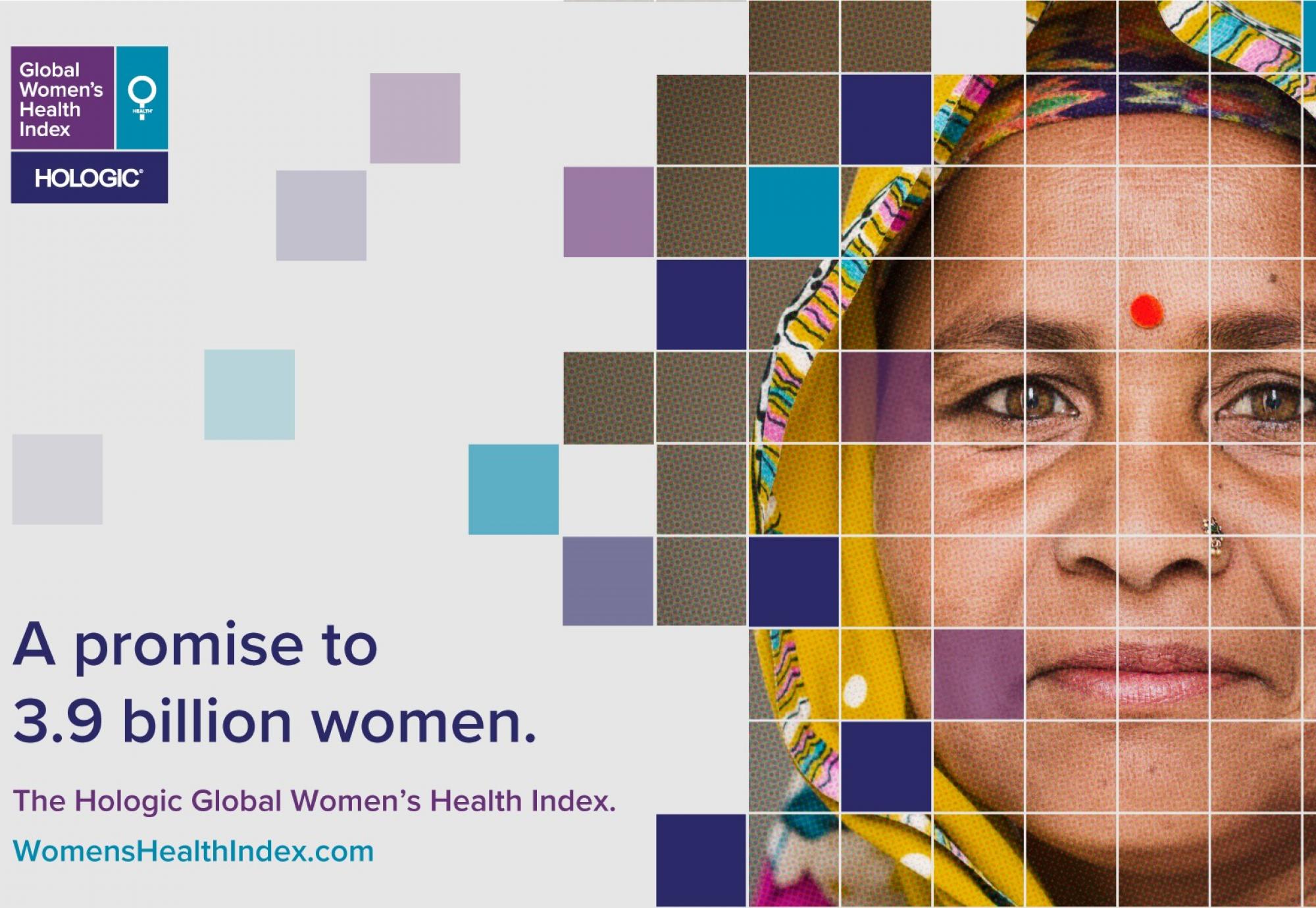Hologic, a leader in women’s health, has launched its inaugural Global Women’s Health Index – the largest comprehensive study, representing the health of more than 2.5 billion women and girls across the globe. The multi-year Index is in partnership with Gallup and captures insights directly from more than 60,000 women and girls from 116 countries and territories.
Developed to understand how women’s quality of life and life expectancy can be improved, the study takes into consideration five areas of women’s health: preventative care, emotional health, opinions on health and safety, basic needs, and individual health. These dimensions account for more than 80% of the variance in female life expectancy.
As a leader in the early detection, diagnosis, and treatment of women’s health issues, Hologic knows first-hand that you can’t improve what you don’t measure.
Tanja Brycker, VP for Strategic Development, Breast, Skeletal Health and Gynaecological Surgical Solutions commented, “There was a clear need for more robust, quality data and benchmarking to track and measure women’s health on a global level — particularly as COVID-19 has worsened longstanding healthcare disparities.”
The Index shows that women’s health needs are not being met globally; no one country or territory scored more than 69 out of 100. The UK was ranked 12th demonstrating its strong leadership in women’s care as part of its universal healthcare system. However, the Index highlighted key areas for improvement such as preventative care, where it ranked 70th. The UK’s ranking echoes the Government’s acknowledgement[i] that more needs to be done to address health inequalities that affect women, which was reflected by its call for evidence earlier in the year to inform its approach to a women’s health strategy.
Women experiencing pain on a daily basis
Nearly one in four British women report experiencing significant physical pain in a day. This is consistent across the globe with 3 in 10 – more than 750 million – reporting regular pain.
These findings highlight the need for greater access to preventative healthcare, identifying issues before pain is present, encouraging uptake of screening where it is offered and improving access to available treatments.
Dr Nighat Arif, a leading GP specialising in women’s health commented, “Unfortunately as a society, we normalise women’s pain and this stems from our acceptance of menstrual pain. We need to encourage women not to ignore pain and seek advice from their local GP as a first port of call. Their suffering may be easily treated. We also need to make procedures as pain free as possible to encourage women to come forward.”
Hologic’s Index data shows that the number of British women experiencing significant pain daily, rises to 38% for those over 60 years old. This highlights an opportunity to put greater emphasis on preventative healthcare and earlier detection of diseases, as this will contribute to reducing women’s pain burden.
Dr Nighat Arif continues, “We need to encourage women to understand their bodies better. Recognising abnormalities and pain that is linked to them could help identify something more serious.”
Equal healthcare across the country must be a priority
The Index highlights socio-economic and regional disparities in how women are able to access healthcare. For instance, British women in the poorest 40% of the UK’s income distribution are 14% less satisfied with available healthcare than those in the top quintile of income distribution.
When asked if they thought women in their area received good quality care during pregnancy, 86% of those living in rural areas believe women receive good quality healthcare compared to 74% of women living in urban regions.
“Women should receive the same standard of care regardless of their location and this will likely require greater channels of funding to regions where complex socio-economic challenges persist. There is also an opportunity for more joined up commissioning of services and cross-departmental communication” continued Dr Arif.
Annual Index to be used as science-backed data
The Index provides disaggregated data on women’s health and provides data that can support healthcare leaders as they develop actionable and measurable plans to prioritise women’s health, improve quality of life and increase life expectancy over time.
Using insights such as these to trigger meaningful action warrants widespread cooperation and change across government, the NHS, patient advocacy groups, and industry. The Women’s Health Strategy will be the first step on this journey.
By collaborating with non-profit organisations and patient advocacy groups, Hologic is working to promote health equality through grants, educational and awareness campaigns, and research projects. In the UK this includes its Project Health Equality initiative, where in Manchester, it recently partnered with charity Prevent Breast Cancer UK, raising awareness of breast cancer screening in areas of deprivation and low uptake of screening. Through this work, Hologic and Prevent encouraged women to attend their breast screening appointment when invited and provided information to tackle barriers that stop women from attending.
This commitment builds on Hologic’s 30 years of championing women’s health around the world through its products for breast and cervical cancer screening, infectious disease detection, and gynaecologic surgery and its partnerships with numerous global initiatives promoting better access to healthcare.
For more information visit: https://hologic.womenshealthindex.com
[i] GOV.UK. 2021. Women's Health Strategy: Call for Evidence. [online] Available at: <https://www.gov.uk/government/consultations/womens-health-strategy-call-for-evidence/womens-health-strategy-call-for-evidence> [Accessed 24 November 2021].



















